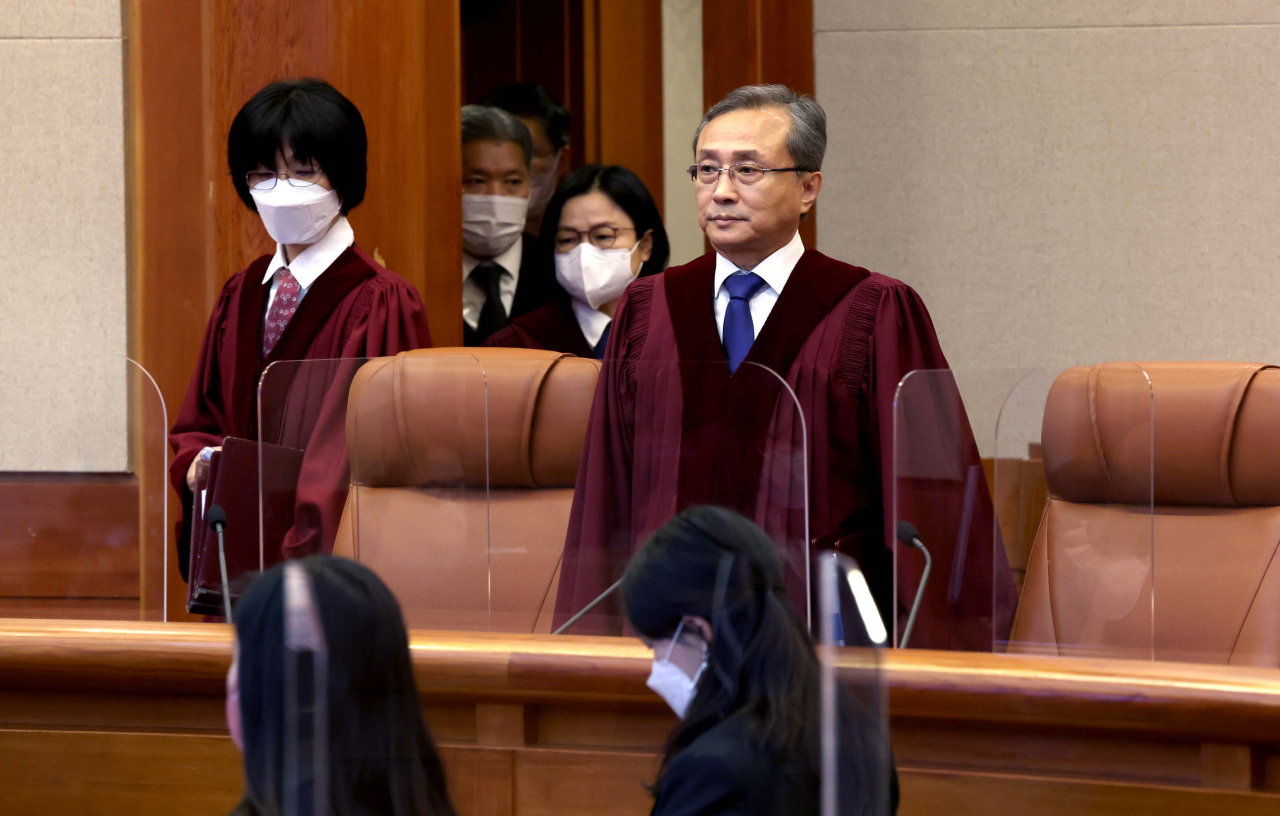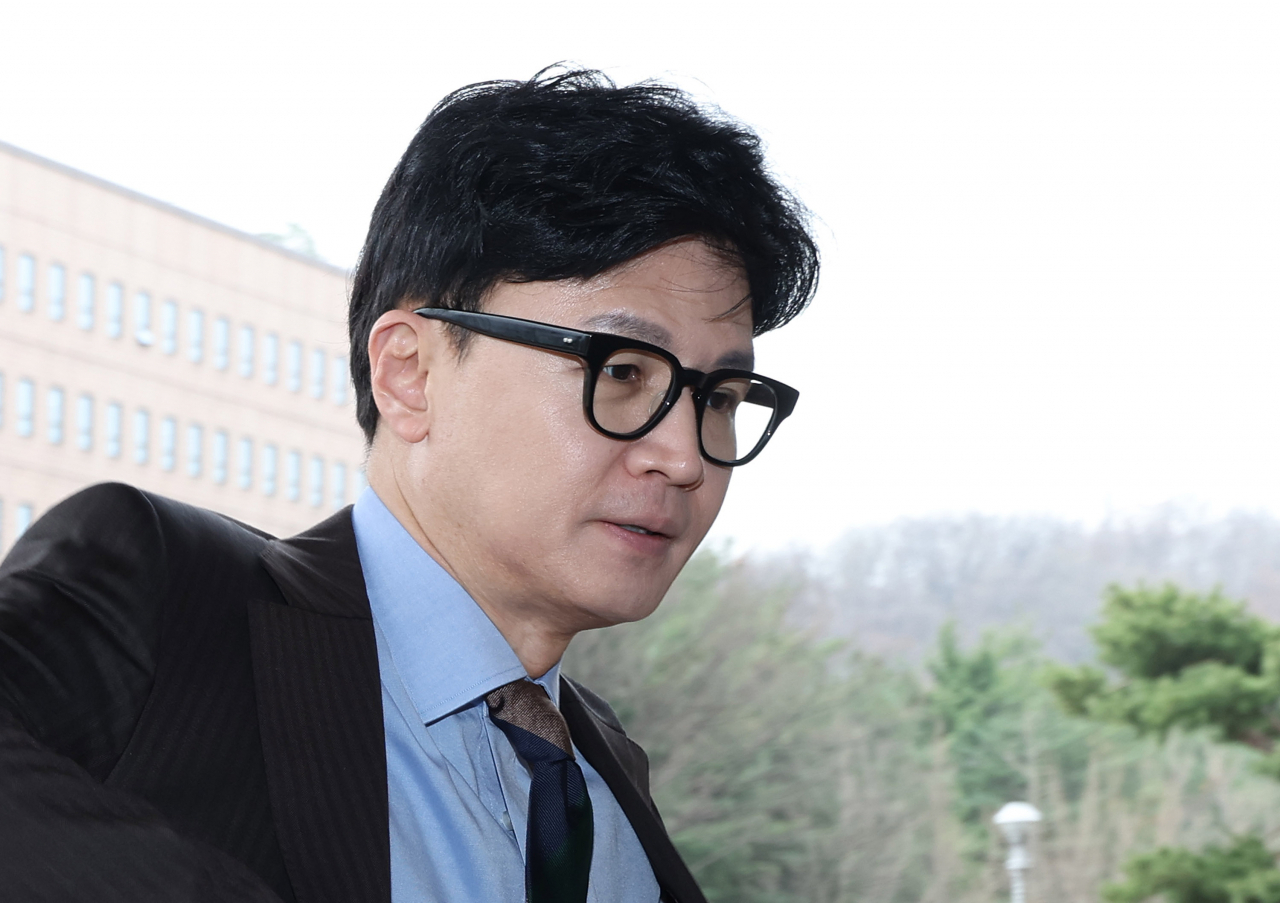Constitutional Court upholds prosecution reform bill, but admits procedural lapses
By Son Ji-hyoungPublished : March 23, 2023 - 18:13

South Korea's Constitutional Court upheld a bill to curb the prosecution's investigative power on Thursday, putting an end to debate over whether the bill itself breaches rights protected by the Constitution. But the court partially acknowledged that there were procedural lapses in the process of passing the bill on the part of the Democratic Party of Korea, the main opposition that holds a majority of seats in the National Assembly.
The nine-member court dismissed prosecutor-turned-Justice Minister Han Dong-hoon's claim that bills designed to limit the rights of the national prosecution should be deemed unconstitutional. The decision was reached narrowly in a 5-to-4 ruling.
The majority opinion indicated that the minister did not have viable status to file the complaint. The court added that it was dismissing the claim as South Korea's Constitution does not stipulate the prosecution's right to investigate and prosecute.
The court also voted down conservative lawmakers' complaints to reverse the liberal-controlled parliament's decision to pass the bills in a 5-to-4 decision. Majority opinion showed that lawmakers who opposed the passage of the bills had been guaranteed sufficient rights to express their opinions through such methods as a filibuster.
Han told reporters on his way out of the office that he "could not consent to the ruling."
The ruling came after controversial prosecution reform bills came into effect on Sept. 10 last year, in a country where the prosecution has long capitalized on their power to both investigate and indict in major criminal cases.
But revisions of the Prosecutors’ Office Act and Criminal Procedure Act have been put together to narrow the prosecution's scope of investigation.

The reform bills stipulate that prosecutors can no longer investigate high-ranking officials, politicians suspected of violating election law, those believe to have committed crimes related to the defense industry and those who may be held responsible for a national disaster. Most of such crimes are now investigated by the police, with investigative powers of police now being consolidated.
Instead, the prosecution's responsibility has been limited to cases concerning corruption and white-collar crimes. Moreover, the prosecution's power to complement the police investigation has also been restricted.
The prosecution reform bill was signed into law by former President Moon Jae-in on May 3, 2022, immediately before his successor, current President Yoon Suk Yeol, took office a week later.
The Democratic Party, which has dominant voting power in the parliament, rushed to pass the bill through the plenary session, while justifying their claims that prosecutors have long been accused of abusing power for political purposes.
Notably, the abrupt decision of Rep. Min Hyung-bae to officially quit the Democratic Party to help the reform go forward has been at the center of the controversy. Min's status as an independent lawmaker, who was to vote in favor of the Democratic Party, altered the balance of power in a six-member subcommittee under the Legislation and Judiciary Committee of the National Assembly. This allowed the bill to make its way into the plenary session of the National Assembly, which prompted its passage by the liberal lawmakers.
A group of ruling People Power Party lawmakers and Justice Minister Han filed the complaints separately.
Lawmakers led by Rep. Yoo Sang-bum in April 2022 demanded the court review whether there was any breach of their rights during the controversial bill passage.
The filing by Han and six more prosecutors came two months after the lawmakers' complaint, asking the court whether the bill itself to deprive prosecutors of their power was against the Constitution.
Han on the sidelines moved to revise the ordinance to revive the prosecution's ability to probe high-ranking officials' abuse of power and public document forgery, as well as organized crime such as drug-related crimes and fraudulent phone calls. President Yoon, who was himself formerly a prosecutor, approved the revision in September.
Thursday's ruling came just before two out of nine judges retire from their posts in March and April, respectively.



















![[Today’s K-pop] Treasure to publish magazine for debut anniversary](http://res.heraldm.com/phpwas/restmb_idxmake.php?idx=642&simg=/content/image/2024/07/26/20240726050551_0.jpg&u=)